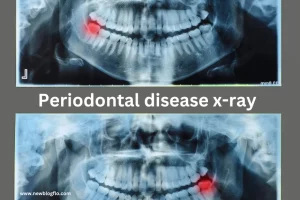Experiencing dental pain? Learn about the possible causes of toothache and ear pain in the same side and discover effective treatment methods.
When tooth and ear pain strike the same side of your head, it can be perplexing and concerning. However, there are logical explanations for these twinned troubles. Let’s explore the culprits behind simultaneous tooth and ear discomfort and pinpoint effective treatments.
Unveiling the Culprit: Dental Abscesses
A deeper dive into dental abscesses unveils how these pocket infections trigger toothache radiating to the ear. Dental abscesses brew when bacteria invade the tooth’s soft pulp amid decay or injury. Pus and fluid buildup follows, wedging inside the tooth and compressing the surrounding nerve endings. This immense pressure on the tooth’s nerves stimulates intense tooth pain that can throb and linger for days.
Abscessed teeth commonly trigger referred pain flaring up in areas beyond the mouth. The ears are especially prone as they share key nerves with multiple teeth. Specifically, the mandibular molars and lower wisdom teeth link to the ear through the auriculotemporal nerve. Inflammation travels this pathway, spurring ear discomfort. Tenderness may concentrate in the outer ear or plunge deeper, causing a plugged sensation and muffled hearing.
Catching dental abscesses swiftly is key, as the infection can spread to delicate facial structures. Signs like swollen gums with pockets of pus clue dentists into brewing abscesses. Often, imaging tests are needed to pinpoint the afflicted tooth before abscess drainage and a root canal. This severs the infection while saving the tooth from extraction.
The Connection: Ear and Jaw Pain
Beyond dental origins, diverse tooth troubles can spark ear and jaw discomfort thanks to the head’s interconnected nerves. Teeth grinding and temporomandibular joint disorders exemplify this shared distress.
When excessive teeth grinding or clenching strains the temporomandibular joint, patients often report concurrent ear pain. This is because the trigeminal and facial nerves linking the jaw also innervate the ear. Jaw tension from grinding places pressure on these nerves, making the ear and jaw ache in tandem. Fitting a bite guard cushions against this issue.
Ear symptoms also frequently accompany temporomandibular joint disorders impacting jaw mobility. Damaged jaw joints kindle inflammation that travels along enmeshed nerves, inflaming tissues in the ear. Special splints can re-align the jaw and alleviate these symptoms.
Can a Root Canal Successfully Alleviate Ear and Tooth Pain?

When tooth decay or injury enables bacteria to infect the tooth’s pulp, a root canal stamps out irritation at the source. During this endodontic procedure, the dentist drills into the tooth and suctions out the inflamed pulp. The canals are cleaned, shaped, decontaminated, and filled to prevent reinfection. This eliminates the diseased pulp nourishing the abscess and provides profound pain relief.
Studies show root canal treatment reliably calms both toothache and associated ear pain in over 97% of dental abscess cases. This curative power highlights the potency of treating the oral origin to ease referred discomfort affecting the ear. Follow-up appointments ensure healing continues smoothly. With the infection eradicated and tooth preserved, patients find lasting respite from twinned tooth-ear troubles.





